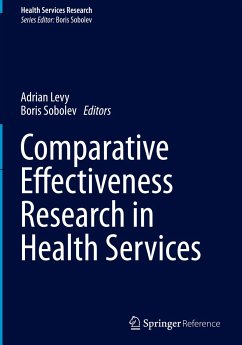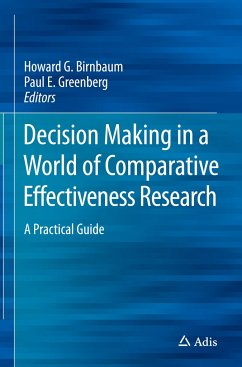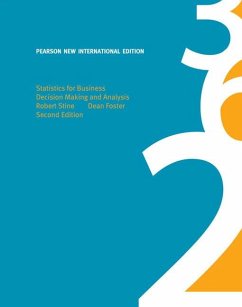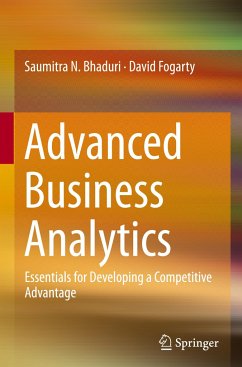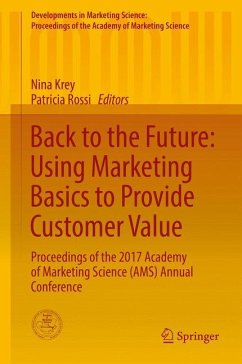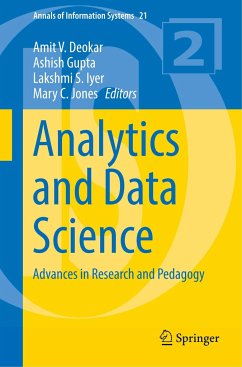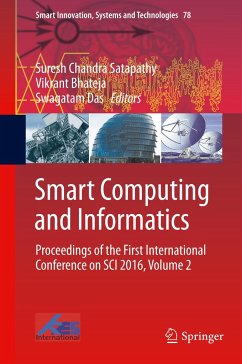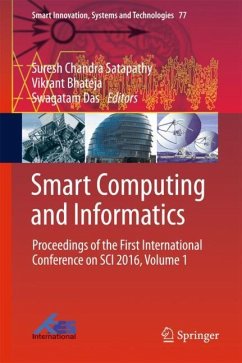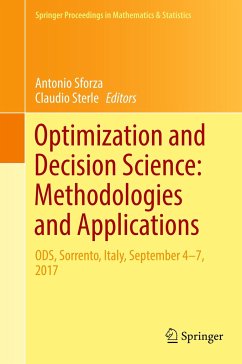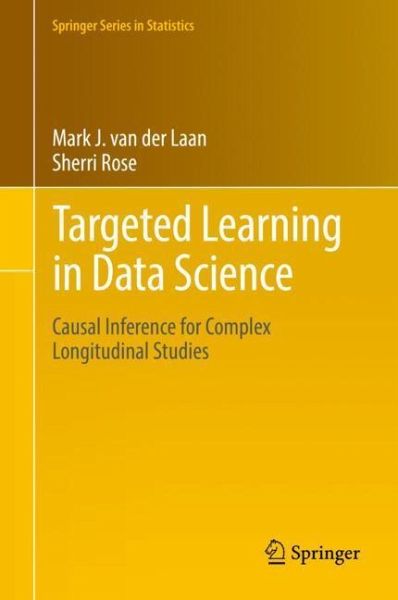
Targeted Learning in Data Science
Causal Inference for Complex Longitudinal Studies
Versandkostenfrei!
Versandfertig in 6-10 Tagen
100,99 €
inkl. MwSt.
Weitere Ausgaben:

PAYBACK Punkte
50 °P sammeln!
This textbook for graduate students in statistics, data science, and public health deals with the practical challenges that come with big, complex, and dynamic data. It presents a scientific roadmap to translate real-world data science applications into formal statistical estimation problems by using the general template of targeted maximum likelihood estimators. These targeted machine learning algorithms estimate quantities of interest while still providing valid inference. Targeted learning methods within data science area critical component for solving scientific problems in the modern age....
This textbook for graduate students in statistics, data science, and public health deals with the practical challenges that come with big, complex, and dynamic data. It presents a scientific roadmap to translate real-world data science applications into formal statistical estimation problems by using the general template of targeted maximum likelihood estimators. These targeted machine learning algorithms estimate quantities of interest while still providing valid inference. Targeted learning methods within data science area critical component for solving scientific problems in the modern age. The techniques can answer complex questions including optimal rules for assigning treatment based on longitudinal data with time-dependent confounding, as well as other estimands in dependent data structures, such as networks. Included in Targeted Learning in Data Science are demonstrations with soft ware packages and real data sets that present a case that targeted learning is crucial for the next generation of statisticians and data scientists. Th is book is a sequel to the first textbook on machine learning for causal inference, Targeted Learning, published in 2011.
Mark van der Laan, PhD, is Jiann-Ping Hsu/Karl E. Peace Professor of Biostatistics and Statistics at UC Berkeley. His research interests include statistical methods in genomics, survival analysis, censored data, machine learning, semiparametric models, causal inference, and targeted learning. Dr. van der Laan received the 2004 Mortimer Spiegelman Award, the 2005 Van Dantzig Award, the 2005 COPSS Snedecor Award, the 2005 COPSS Presidential Award, and has graduated over 40 PhD students in biostatistics and statistics.
Sherri Rose, PhD, is Associate Professor of Health Care Policy (Biostatistics) at Harvard Medical School. Her work is centered on developing and integratinginnovative statistical approaches to advance human health. Dr. Rose's methodological research focuses on nonparametric machine learning for causal inference and prediction. She co-leads the Health Policy Data Science Lab and currently serves as an associate editor for the Journal of the American Statistical Association and Biostatistics.
Mark van der Laan, PhD, is Jiann-Ping Hsu/Karl E. Peace Professor of Biostatistics and Statistics at UC Berkeley. His research interests include statistical methods in genomics, survival analysis, censored data, machine learning, semiparametric models, causal inference, and targeted learning. Dr. van der Laan received the 2004 Mortimer Spiegelman Award, the 2005 Van Dantzig Award, the 2005 COPSS Snedecor Award, the 2005 COPSS Presidential Award, and has graduated over 40 PhD students in biostatistics and statistics.
Sherri Rose, PhD, is Associate Professor of Health Care Policy (Biostatistics) at Harvard Medical School. Her work is centered on developing and integratinginnovative statistical approaches to advance human health. Dr. Rose's methodological research focuses on nonparametric machine learning for causal inference and prediction. She co-leads the Health Policy Data Science Lab and currently serves as an associate editor for the Journal of the American Statistical Association and Biostatistics.



